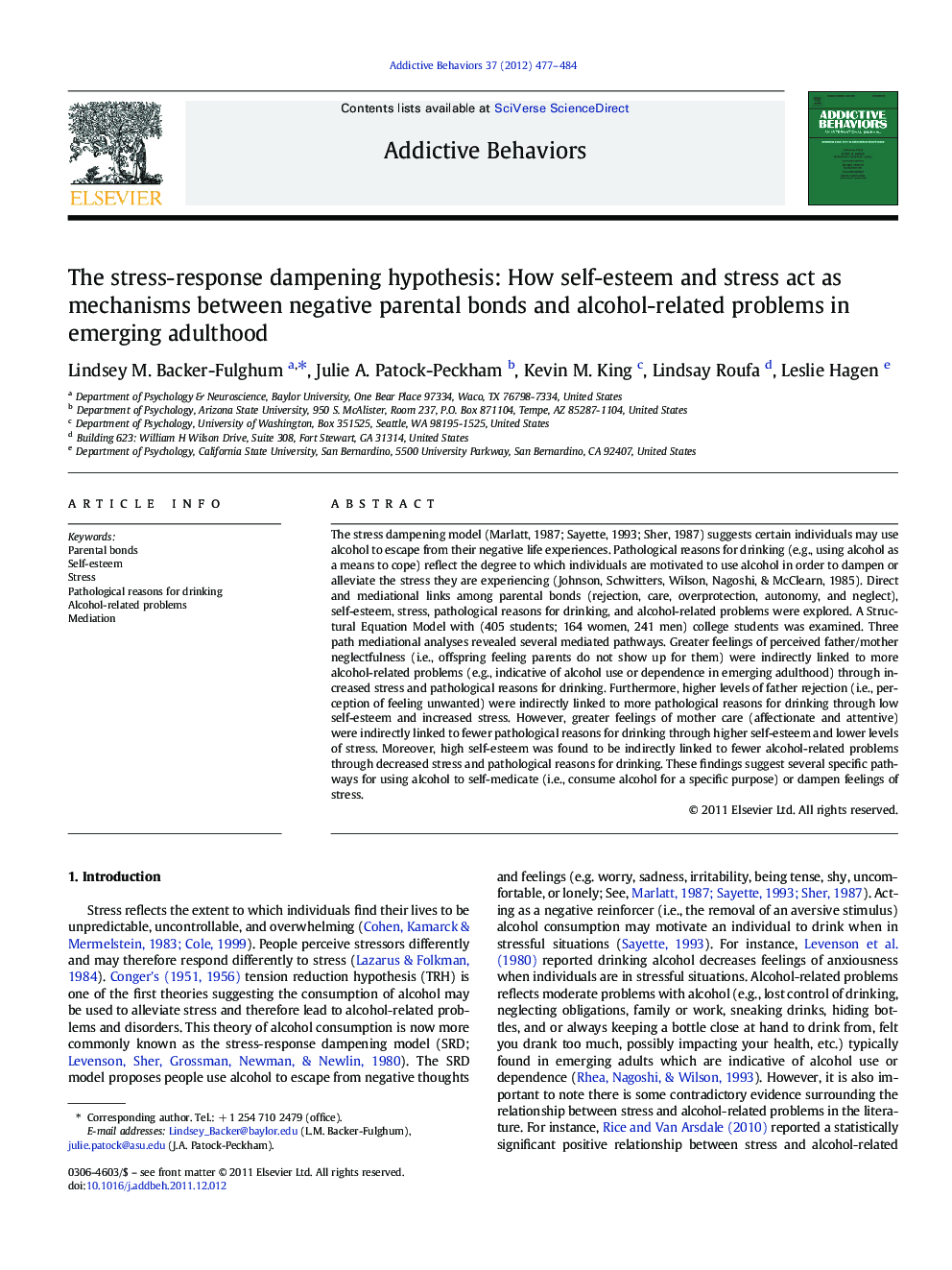| کد مقاله | کد نشریه | سال انتشار | مقاله انگلیسی | نسخه تمام متن |
|---|---|---|---|---|
| 899143 | 915363 | 2012 | 8 صفحه PDF | دانلود رایگان |

The stress dampening model (Marlatt, 1987; Sayette, 1993; Sher, 1987) suggests certain individuals may use alcohol to escape from their negative life experiences. Pathological reasons for drinking (e.g., using alcohol as a means to cope) reflect the degree to which individuals are motivated to use alcohol in order to dampen or alleviate the stress they are experiencing (Johnson, Schwitters, Wilson, Nagoshi, & McClearn, 1985). Direct and mediational links among parental bonds (rejection, care, overprotection, autonomy, and neglect), self-esteem, stress, pathological reasons for drinking, and alcohol-related problems were explored. A Structural Equation Model with (405 students; 164 women, 241 men) college students was examined. Three path mediational analyses revealed several mediated pathways. Greater feelings of perceived father/mother neglectfulness (i.e., offspring feeling parents do not show up for them) were indirectly linked to more alcohol-related problems (e.g., indicative of alcohol use or dependence in emerging adulthood) through increased stress and pathological reasons for drinking. Furthermore, higher levels of father rejection (i.e., perception of feeling unwanted) were indirectly linked to more pathological reasons for drinking through low self-esteem and increased stress. However, greater feelings of mother care (affectionate and attentive) were indirectly linked to fewer pathological reasons for drinking through higher self-esteem and lower levels of stress. Moreover, high self-esteem was found to be indirectly linked to fewer alcohol-related problems through decreased stress and pathological reasons for drinking. These findings suggest several specific pathways for using alcohol to self-medicate (i.e., consume alcohol for a specific purpose) or dampen feelings of stress.
► Direct and mediated links among parents, esteem, stress, and alcohol variables were explored.
► A path model was used to examine mediated pathways.
► Stress and reasons for drinking mediated perceived parental neglect on alcohol problems.
► Esteem and stress mediated father rejection on reasons for drinking.
► Stress and reasons for drinking mediated esteem on alcohol problems.
Journal: Addictive Behaviors - Volume 37, Issue 4, April 2012, Pages 477–484